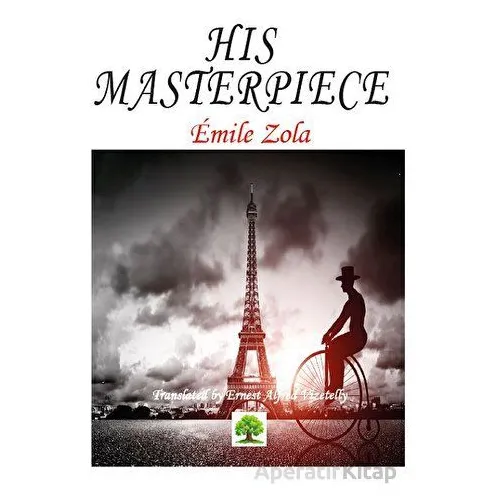His Masterpiece - Emile Zola - Platanus Publishing
Hiç mesaj bulunmadı
| Taksit | Tutar | Toplam |
|---|---|---|
| Tek Çekim | 378.00 TL | 378.00 TL |
| 2 Taksit | 189.00 TL | 378.00 TL |
| 3 Taksit | 131.04 TL | 393.12 TL |
| 4 Taksit | 99.23 TL | 396.90 TL |
| 5 Taksit | 80.14 TL | 400.68 TL |
| 6 Taksit | 67.41 TL | 404.46 TL |
| Ödeme Türü | Toplam Tutar |
|---|---|
| Diğer Kredi Kartları | 378.00 TL |
| Havale / Eft | 378.00 TL |
| Posta Çeki | 378.00 TL |
| Kapıda Ödeme | 393.00 TL |
Kapıda ödemeli siparişlerde +15,00TL kapıda ödeme hizmet bedeli ilave edilir. | |
- Vade farksız taksitler KOYU renkte gösterilmektedir.
- X+X şeklinde belritilen taksitler (Örneğin: 2+3) 2 taksit olarak işleme alınmakta ancak ilgili bankanın kampanyası dahilinde 2 taksit üzerinden işlem yapıldığı halde 2+3 yani 5 taksit olarak kartınıza ve ödemenize yansımaktadır. (2 taksit seçilmiş olsa bile banka kampanyası dahilinde ekstradan vade farkı eklenmeden işlem 5 taksite bölünmektedir.)
His Masterpiece - Emile Zola - Platanus Publishing
HIS MASTERPIECE,’ which in the original French bears the title of L’Oeuvre, is a strikingly accurate story of artistic life in Paris during the latter years of the Second Empire. Amusing at times, extremely pathetic and even painful at others, it not only contributes a necessary element to the Rougon-Macquart series of novels—a series illustrative of all phases of life in France within certain dates—but it also represents a particular period of M. Zola’s own career and work. Some years, indeed, before the latter had made himself known at all widely as a novelist, he had acquired among Parisian painters and sculptors considerable notoriety as a revolutionary art critic, a fervent champion of that ‘Open-air’ school which came into being during the Second Empire, and which found its first real master in Edouard Manet, whose then derided works are regarded, in these later days, as masterpieces. Manet died before his genius was fully recognised; still he lived long enough to reap some measure of recognition and to see his influence triumph in more than one respect among his brother artists. Indeed, few if any painters left a stronger mark on the art of the second half of the nineteenth century than he did, even though the school, which he suggested rather than established, lapsed largely into mere impressionism—a term, by the way, which he himself coined already in 1858; for it is an error to attribute it—as is often done—to his friend and junior, Claude Monet.











